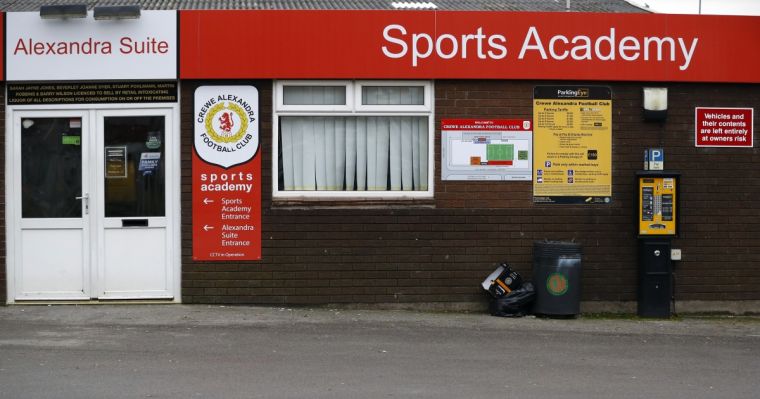We Cannot Ignore The Culture Of Sex Abuse We Have Created

There is an ongoing crisis at the heart of British culture involving horrific cases of child sexual abuse. The latest scandal involves the abuse of young footballers. It hit the headlines in the middle of a beleaguered inquiry into non-recent sexual abuse which is currently on its fourth chairperson. There have been resignations, firings and a number of different barristers have asked to leave the inquiry. Simultaneously there has been the exposure of a number of paedophile rings that preyed on vulnerable girls who were in the care system, as well as the ongoing fallout as the country comes to terms with the scale of Jimmy Savile's abuse of young people.
Football, hospitals, care homes and schools – wherever there are institutions with inbuilt hierarchies, positions of power and influence can all too easily be leveraged to force children to become victims of sexual abuse. Sadly, the church is also an institution where adults have taken advantage of position to harm and abuse children. At one level this is not surprising. One of the strengths of the church is its open door policy. Anyone can come and be part of a church – there is a welcome that doesn't judge you on who you are or what you have done. The church prides itself on being a family that includes the young, the vulnerable, the sinner and the stranger. Leaders of the church have a responsibility to care for and protect all members of their spiritual family, but there have been far too many incidents where they have been the perpetrators of the abuse. This is despicable beyond measure. Jesus himself spoke out with a dire warning for those leaders who abuse their power when it comes to children: "It would be better for you to be thrown into the sea with a millstone tied around your neck than for you to cause one of these little ones to stumble. So watch yourselves." Luke 17:2-3
The church has been rigorous in getting its house in order – organisations such as the Church's Child Protection Advisory Service offer world class help to make sure that children are not at risk of abuse. Justin Humphreys, executive director (Safeguarding) for CCPAS, says: "In our 40 years of working alongside the Church to improve and embed safer practices, we have seen huge change. There is never room for complacency however, and there is always more that can be done to create safer places. The Church has a huge opportunity to connect with more children in the context of their families than most others, but with this opportunity comes huge responsibility." Sadly no system is bulletproof but I have been impressed by the professionalism now in place in the churches I visit around the UK.
Just as it would be myopic and unfair to discount the good that children's football training gives to young people because of these scandals so it would be wrong to write off the church's work because of these terrible crimes. As a foster carer I have been involved in helping children try to recover from the trauma of sexual abuse, physical violence and neglect. Children that have experienced this kind of abuse do not heal quickly, some may never fully recover from what has happened to them. However, I have seen first-hand the healing power both of inclusion in the church and indeed inclusion in football training.
Early morning football training with my birth children was a brilliant opportunity for them, but it was with one particular foster son that I really witnessed the transforming power of sport. He'd had a difficult start to life and struggled with almost everything – concentrating, coordinating, anxiety, poor eyesight, socialising, managing his behaviour and his emotions. I took him to football training to burn off some energy at the start of the weekend, and as the coaches invested time and attention in him, he grew in confidence and self-esteem – precious things for a young footballer likely to spend his entire childhood in the care system. Unlike Bill Shankly, I'm not convinced that football is more serious than life or death, but I do believe sport can be a force for good in the world. For my foster son, sport was the sound stage for kind words to be spoken. Sport was the social context to receive a rare pat of affirmation, a cheer of celebration or an embrace of commiseration.
I've seen that same healing power visible in church. The same foster lad was welcomed with open arms into our church community. Surrounded by people who smiled at him, spent time with him and valued him, he began to see a world he had never experienced before. He began to see what it was to feel the love of an extended family. He was greeted in the street, invited to parties, and received postcards from holidays and presents on his birthday. The church, who knew nothing of his background, loved him, and he came to love the church back.
It is precisely because the church and football can be so very beneficial to vulnerable children that sexual abuse must be fought. We must commend the footballers who have had the bravery to speak out about this. The fact that it has taken decades for them to come forward shows the degree of pain, insecurity and fear involved. We must do more than just complain about how rife sexual abuse has been in our institutions. We must do more than reform our institutions so that they cannot be commandeered by those who seek to harm our children. We must also be willing to step up and offer hope, security, comfort and solace to those who are the victims of this violence and abuse.
Dr Krish Kandiah is the founding director of Home for Good and a contributing editor to Christian Today.











